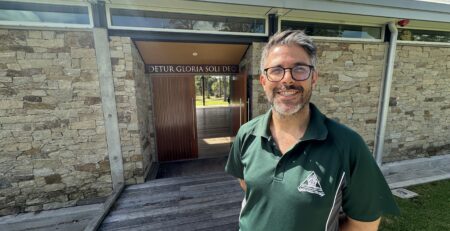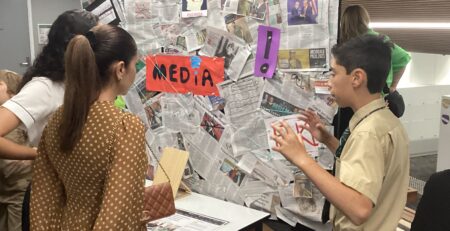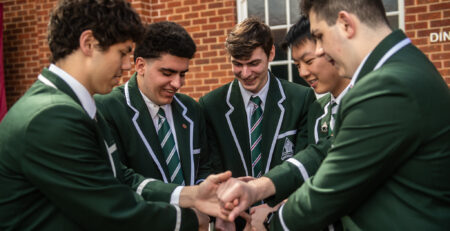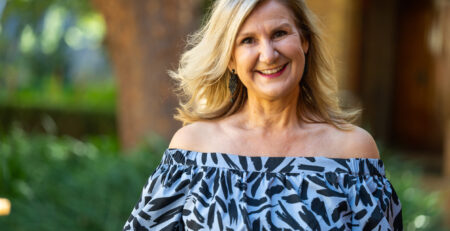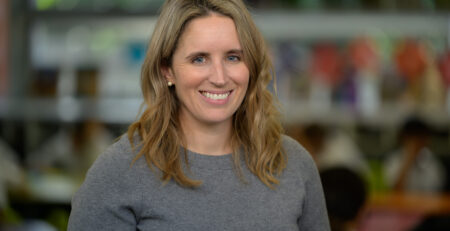Prep | Year 6 News
English
To start the Term, Year 6 have concentrated on creative writing. In particular we looked at how to resolve or conclude a short story. We created a list of 5 different ways to end a story; resolved endings, unresolved (cliff hangers), twists, tiebacks or crystal ball endings. Boys also had a lot of fun learning about genres. We transformed the “Dr Normal” short story, by Tim Harris, into Dr Horror, Dr Sci-fi or Dr Comedy. In addition, we also created a main character that we related to and that could be included in a variety of story types.
We will continue to write creatively for another 2 weeks before moving onto poetry.
Rapid writing is still a focus for Year 6 and we are also tying in grammar to our daily writing. This week we brushed up on how to use apostrophes for both possession and for contractions.
Literacy groups have kicked off again with new novels. Boys are required to read their novels at home in preparation for class discussions on Mondays and Wednesdays.
Maths
In Mathematics we have been inquiring about TIme and Position. We used bus and plane timetables to create a travel itinerary for our dream holiday! Time zones proved tricky as we crossed the international date line to our dream destination. We also constructed a large timeline on the waves of migration in Australia as we investigated how scale can be used to represent large time periods on a smaller scale. In position, we have been exploring coordinates and formulas on the cartesian plane. We used Google Maps and street directories as we learned about grid referencing and cardinal directions.
Over the next few weeks, we are excited to be learning more about fractions, decimals and percentages.
Unit of Inquiry
Our Unit of Inquiry has seen us inquire into the different perspectives associated with migration in Australia. We have looked at what life was like for many refugees when entering Australia. Look out for our reflective videos on Seesaw to see how much we have discovered and grown in our understanding of Migration.
This week will see us begin our next unit, How the World Works, which will inquire into the natural world and its laws, as well as how humans use their understanding of scientific principles to interact with society and our environment. We will explore the world’s systems, particularly with regard to natural phenomena on earth, in space and on earth and in space.
If you have any expertise in geology, astronomy, meteorology or natural disasters please let us know as we’d love your input into this unit as an expert.
Music
In music class, Year 6 are studying their Stand Alone Unit of Inquiry The Fusion Between Art and Music. Within this unit, they will be exploring the central idea of how art and music are interwoven through the ages, by drawing connections between the two artforms. They will also be investigating the concepts of connection, perspective and form through answering the following questions: How has art been reflected in Music and vice versa? What are common elements evident in both art forms? Why are forms of art and music not interpreted the same way? Additionally, the boys are practising for the combined Primary Years performance of Hamilton Highlights at the Arts Festival in week 6, in which they are learning a medley of songs and are learning choral techniques, which will be assessed on their rubric later in the term. They will be assessed on how well they cooperate with others, their ensemble skills, following conductors instructions/ hand signals, interpreting/ imitating pitch and rhythm, using the correct vocal technique (through breathing, phrasing etc.) as well as providing musical expression to communicate effectively with an audience. Their progress with the songs each week is filmed on seesaw, and there are resources available on canvas for the boys to practise their part at home.
Mandarin
In the first week, students decided their ways to share the holiday highlights and some ways were making a Canva poster, a game and a writing paragraph etc.
Then we started the new Education Perfect units by practising the core and extra vocabularies with the assistance of word lists. The unit for beginning learners is Greetings & Introductions. Heritage learners have 3 different units, and they are Countries & Nationalities, Giving Directions, and Ordering & Buying Food. There are 4 learning modes in word learning and practice and they are reading, (translate Chinese text to English), listening (listen to Chinese and translate to English), writing (translate English text to Chinese) and dictation (listen to Chinese and type Chinese). The 4 learning modes allow student agency and provide differentiation to cater for various needs and learning styles.





